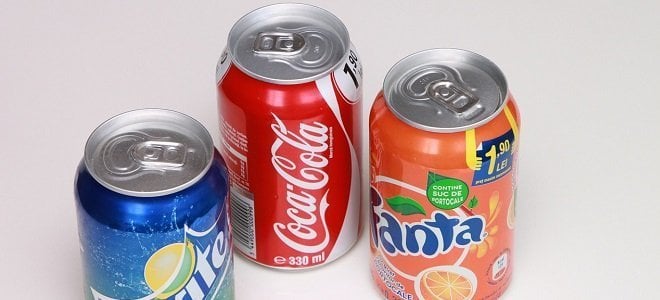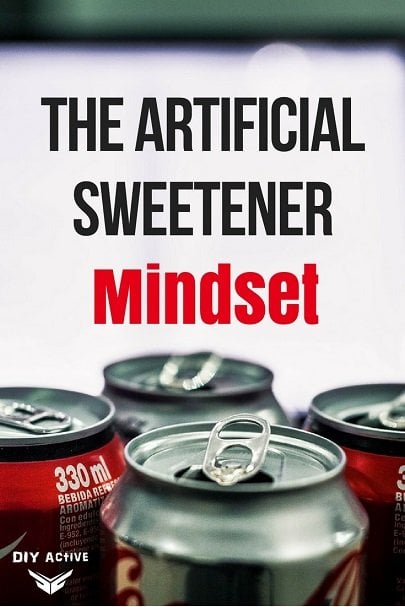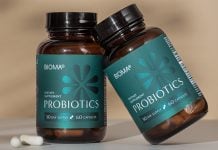
Watch the Artificial Sweeteners
While the war between sugar substitutes (artificial sweeteners) and table sugar (sucrose) rages on, the artificial sweetener mindset is often overlooked. But first, let’s go over some background.
Breakdown: Artificial Sweeteners
 The sugar substitute group is composed of artificial sweeteners, sugar alcohols, novel sweeteners, and natural sweeteners. Many believe that almost all sugar substitutes are safe to consume (aspartame in artificial sweeteners can lead to headaches and some sugar alcohols can cause bloating or diarrhea).
The sugar substitute group is composed of artificial sweeteners, sugar alcohols, novel sweeteners, and natural sweeteners. Many believe that almost all sugar substitutes are safe to consume (aspartame in artificial sweeteners can lead to headaches and some sugar alcohols can cause bloating or diarrhea).
The safety of sugar substitutes is currently under question by an increased amount of studies coming out, but that is for another article. To prevent any negative effects of sugar substitutes the FDA has set daily consumption limits for the more popular types:
- Aspartame (NutraSweet and Equal): 50mg/kilogram of body weight (18-19 diet sodas)
- Saccharin (Sweet ‘n Low and Sugar Twin): 5mg/kilogram of body weight (12 Sweet ‘n Low packets)
- Sucralose (Splenda): 5mg/kilogram of body weight (6 diet sodas)
- Acesulfame K (Sunett and Sweet One): 15mg/kilogram of body weight (6 diet sodas)
Many of these sugar substitutes are intense sweeteners being considerably sweeter (anywhere from 30 to 8,000 times sweeter) than table sugar and as such can be used in a much smaller quantity. Likewise, these have come into popularity because many contain zero calories while table sugar contains 4 calories per gram.
These “empty calories” have been attributed to individuals gaining weight.
Because of the calorie content of sugar, sugar substitutes can play a real role in weight control and diabetes prevention as Dr. Ruth Kava (Director of Nutrition at the American Council of Science and Healthy) said, “These products can be useful when used appropriately for people like diabetics who need to control their sugar intake and in overweight people.”
Artificial Sweetener Mindset
It definitely seems that consuming only goods with artificial sweeteners is the way to go. Not so fast.
The mental aspects of consuming goods that have “zero sugar” can cause you to overeat; coined the “Artificial Sweetener Mindset.”
One study published in Physiology & Behavior had this to say about the type of individuals who most commonly consume diet sodas, “Light soft drinks are rather chosen by the more heavy persons who try to restrict their energy intake perhaps in order to control the body weight, and more unexpectedly, by adults who eat for comfort” (Elfhag et al 2007).
This by no means is everyone that drinks diet soda but it seems there is an emotional correlation between diet soda consumption and eating problems! Which is never a good thing.
Likewise, a study published in the International Journal of Obesity demonstrated that the actual consumption of sweet drinks without any actual calorie consumption (diet soda) can actually make your body crave real sugar even more. These cravings can lead to eating problems, which of course can result in weight gain!
Eating or drinking products that are sugar-free doesn’t give you free rein to eat or drink three times as much of the product! You must also keep in mind the other ingredients in the sugar-free products you are consuming; carbohydrates.
 For instance, if you eat 10 cookies because they have been sweetened with a sugar substitute you may think you are in the clear. On the contrary, you must not forget the carb content in those cookies that break down into glucose and calories.
For instance, if you eat 10 cookies because they have been sweetened with a sugar substitute you may think you are in the clear. On the contrary, you must not forget the carb content in those cookies that break down into glucose and calories.
Wrap-Up
When it comes to the consumption of anything, moderation is the key. If you can wean yourself off of soda in general, you can wean yourself off of sweets in general! Doing this can save you a ton of calories and you won’t have to worry about any side effects or binge eating that can accompany sugar substitutes.
Weaning yourself off of diet soda can also help you increase your water consumption and makes your lifestyle more sustainable! Is it a coincidence that the consumption of artificial sugars has risen step-for-step with the rates of obesity?
If you do go with the sugar substitute solution, just remember that just because you ordered a diet soda doesn’t mean you should super-size that value meal as well!
Fight the artificial sweetener mindset!
Want more sugar information:
WebMD – Are Artificial Sweeteners Safe?
References
Elfhag K, Tynelius P, Rasmussen F (2007) Sugar-sweetened and artificially sweetened soft drinks in association to restrained, external and emotional eating. Physiology & Behavior 91: 191-195.
- Post-Workout Meal: Getting the Most from Your Workout - January 22, 2024
- 6 Ab Exercises To Blast Your Core - December 17, 2023
- 10 Office Exercises You Can Do To Burn Calories - November 19, 2023



